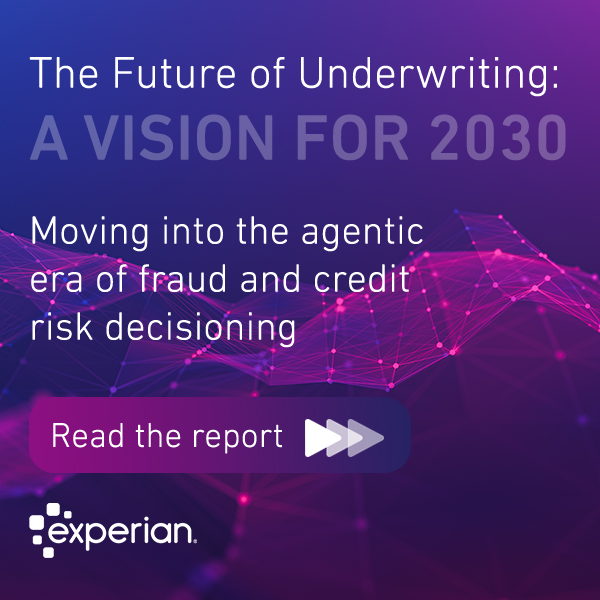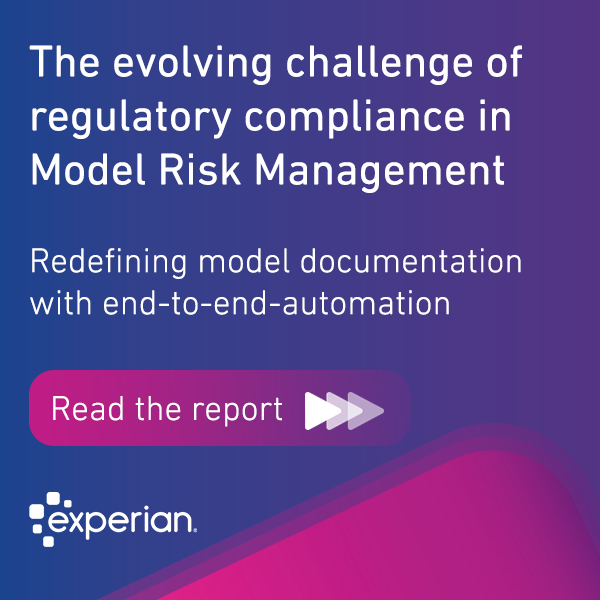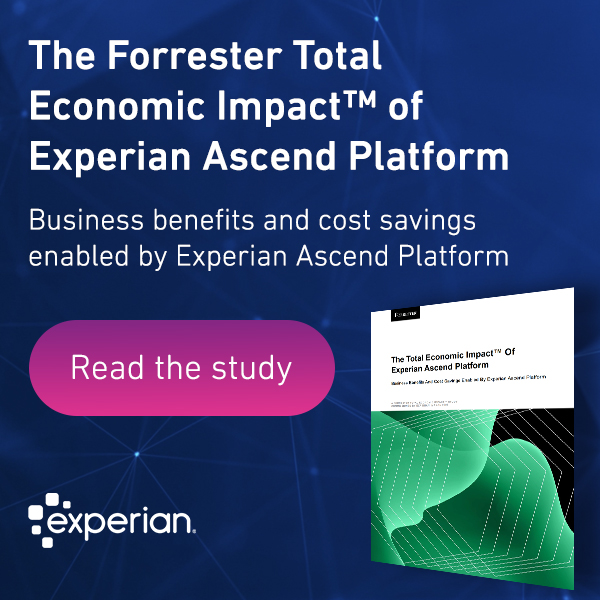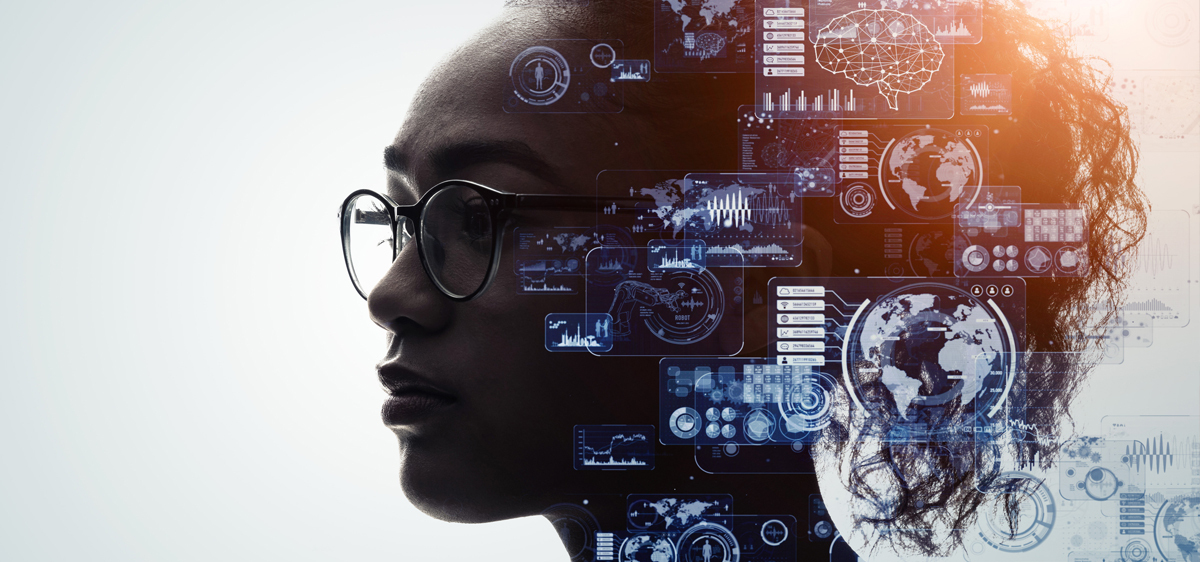 The artificial intelligence (AI) market is expected to grow 159% by 2025 to $190.61 Billion, according to Markets and Markets, and there’s considerable value for businesses and consumers. In our July global survey of businesses and consumers, we found that 60% of businesses planned to invest in advanced analytics and AI to better support their customers’ financial needs during Covid-19.
The artificial intelligence (AI) market is expected to grow 159% by 2025 to $190.61 Billion, according to Markets and Markets, and there’s considerable value for businesses and consumers. In our July global survey of businesses and consumers, we found that 60% of businesses planned to invest in advanced analytics and AI to better support their customers’ financial needs during Covid-19.
As more businesses adopt AI, processing their vast amounts of data with advanced analytics for automated decisions, human oversight is and will remain key to ensure transparency and explainability. This “human element” in AI was the inspiration for our latest “game changers” series.
We recently sat down with five industry experts to get their view on how AI is making the world a better place, and how its use in financial services can be realized. Yi He, Deeba Kazmi, Jennifer Kung, Kathleen Peters, and Laura Stoddart are visionaries and leaders in data science and innovation making a real difference in how advanced technologies are helping consumers and businesses engage more meaningfully.
Q: What excites you most about the AI Industry?
He: “As AI is more involved in our lives, it provides benefits we couldn’t imagine before – such as using your face to unlock your phone security. With the development of AI and machine learning, we can find patterns in data or in behaviors of people to solve complicated problems. That’s really it; helping people make life easier.”
Kazmi: “The main thing is that AI is not only transforming the way we live and communicate, it’s changing the way almost every industry around the world is going to operate. To positively contribute to this growth, it’s not just that you need to learn and then deliver, but to keep innovating and coming up with new solutions that others learn from.”
Kung: “The technology improvement excites me. Things are getting easier, giving us more time to focus on what really matters. We usually don’t have time to focus on some of these areas because we are used to doing things manually. Now with AI, we have a machine to do a job that is manual, so we can focus on analysis and improvement.”
Peters: “What’s most exciting for me are ways AI technology can augment human decisions and innovation, in new directions that we historically run out of horsepower for. And, it can be applied to virtually every industry — the ways that it can better help us leverage big data, robotics, the Internet of Things — there are so many directions we can go with AI.”
Stoddart: “One of the most exciting things about AI is that people benefit from it every day — using social media, or maps to get to the shops, sometimes without even realizing it. And, if you can create an algorithm that can help somebody get credit who previously couldn’t, you can have a real impact on the world that actually changes people’s lives for the better.”
Q: What concerns you most about the AI industry?
He: “I think the key things are data security and privacy protection. People are more and more sensitive about their information being used and released, which is understandable, and why opportunities exist to opt-out of information being used or sold to third parties. The key is to offer comfort by building in how to secure the data and protect privacy.”
Kazmi: “There are pros and cons of everything, especially with a stream of faster evolutions in prominent areas affecting our day-to-day lives. Since it’s still so innovative, when AI is introduced, there’s bound to be reluctance. But, to progress, we need acceptability, encouragement and patience; an understanding between AI research and stakeholders that these developments are going to bring huge positive change.”
Kung: “My main concern is that we need to keep in mind that AI is just a tool to help us. The machine will not replace humans and it cannot tell you what to do. An algorithm can give you a number based on its design. You need to analyze that result and ensure decisions make sense for your business.”
Peters: “The more we know and learn about AI, the better we can anticipate potential risk areas. These include the ethical aspects of technology, and striving to be consciously unbiased. As we progress, explainability and other model governance practices will help us stay within the right guardrails and mold the necessary regulations.”
Stoddart: “Lack of diversity concerns me – both in the boardroom and on the programming side. Decisions that we make in our programming are based on assumptions as human beings and our lived experience. If the people writing the code are not diverse, you’re missing out on whole groups of people in the wider society.”
Q: Can you share with us the “backstory” of how you decided to pursue this career path?
He: “My educational background includes cognitive science, neuroscience, and psychology, and it involved a lot of data analysis and modeling. I wanted to understand how humans behave. In my first job, I did essentially the same work — understanding human behavior from large amounts of data — but to detect fraud. That amazed me and driving my focus today.”
Kazmi: “My education included subjects around analytics, and had a lot of flavor of data science, predictive modeling, mathematics and statistics. AI was very new at the time. I studied these topics and began to understand how data science is developing, and what’s the future of it. I really got excited and interested into it. And once I started my career, there was no looking back.”
Kung: “As a child, I thought I wanted to be an engineer. Statistics was my second choice. But, I am really glad I had the opportunity to follow this path, because statistics and data analysis are amazing. When I started my course, I was so amazed at how data analysis can help you discover a world. You can do anything with data. I realized that this was my true passion.”
Peters: “I became interested in AI from the business aspects – working in a big data environment, we really needed machine learning and AI to handle data at scale. When joining Experian in the identity and fraud area, our mission was clear – harnessing the power of one of the largest data assets in the world to make a difference; finding new ways to stop fraud.”
Stoddart: “I studied physics at university and attained a master’s in particle physics. But, during my final year, I started to learn about AI and machine learning. It was inspiring, especially how quickly they can have an impact on the world compared to academic research, which can be over many years. Realizing how quickly it was progressing, I thought it would be really exciting to get involved.”
Q: Can you tell our audience about the most interesting projects you’re working on now?
He: “Recently, I’ve been working on use cases and projects surrounding identity. We have been working to link identity data from various sources – online and offline. Here at Experian, we have information from many sources, across different business areas. This project is providing a platform to link all this data together, which in the past was not very easy to accomplish. With this platform to provide linkages, it provides a 360-degree view of a person and helps provide conclusions such as whether two identities are the same person. To do this, we utilize machine learning techniques and AI. It’s very exciting.”
Kazmi: “I would like to mention something I’m very proud of, which has been a turning point in the way I look at data science solutions. I have the privilege of playing a prominent role in solving for a crucial economic and societal problem of the world, financial inclusion. This issue has historically blocked growth for financially weak and less established sections of society. I am leading data science as part of the initiative, exploring different sources of information beyond credit history, to increase access to financial products. This is the beauty of data science and how it helps us.”
Kung: “At Experian, I work in a consulting area, so I advise our customers and show them the power of data. Often, it’s not easy for a client to recognize this power. That’s our job – showing them how data can help their business or their decisions. We developed a credit decisioning model for one client using machine learning. This showed them how powerful it can be to use the data we make available to them. They were so amazed with the results. It was a really great experience.”
Peters: “The newest aspect of my role is leading innovation and strategy for decision analytics in North America. I am constantly on the watch for opportunities to incubate and try to apply Experian’s data and analytics and AI capabilities to solve new problems. We are looking at the role of identity and how we might apply capabilities in new ways. There is an expansion of needs, especially as the world evolves, and how we’re identified is evolving. So the application of Experian’s differentiated capabilities to new areas and markets is an area of focus of mine that I’m really excited about right now.”
Stoddart: “One of the most interesting projects I’ve worked on since joining the lab is around fairness of machine learning algorithms, decision-making. It’s about tackling the bias that can come when you use machine learning in a real world scenario. This happens when an algorithm is not being checked properly and it’s discriminating against a certain group. To be part of building this vision about treating everybody fairly is great. Especially to be part of a company that values this effort and recognizes that it’s going to be increasingly important going forward.”
Related stories:
- What is the right approach to AI and analytics for your business? Four fundamental considerations
- Maximizing impact from AI investment: 4 pillars of holistic AI
- Forbes: Are we comfortable with machines having the final say?
 Yi He
Yi He
Yi He works as a data scientist in the Experian NA DataLab. She is dedicated to using machine learning and AI to extract information from large amounts of data to identify, understand and help people, and prevent fraud. She aims to bridge online and offline worlds by linking identity data from these unique sources.
With a focus on minimizing friction to customers, Yi’s work helps organizations identify synthetic identities to avoid fraudulent applications. Recently, she contributed to a Covid Outlook & Response Evaluator (CORE) Model – a “heat map” of geographic populations across the U.S. most susceptible to severe cases of Covid-19.
 Deeba Kazmi
Deeba Kazmi
In her role as a data scientist at the Experian APAC DataLab, Deeba Kazmi is focused on solving business problems with analytics, including the development of consumer and small to medium enterprise credit risk models that leverage alternative data.
Deeba is passionately focused on leveraging AI to create solutions that can help address issues faced by developing markets. Most prominently, this work includes her data science leadership contributions to solving a crucial economic and societal problem – financial inclusion. This effort is helping disadvantaged socio-economic consumer groups gain access to vital credit and financial services by leveraging the power of technology to deliver better outcomes.
 Jennifer Kung
Jennifer Kung
Jennifer Kung is an analytics consultant for Serasa Experian Decision Analytics, where she combines her knowledge of financial services with her data analysis expertise.
Jennifer aims to harness the power of data through robust, descriptive and predictive analytical solutions to help clients realize the benefits of the massive amounts of data available to them. She recognizes the magnificence in powering discoveries through data analysis and enjoys revealing these capabilities to businesses who can benefit from these robust, yet approachable solutions. Jennifer enjoys knowing that her work helps to simplify and accelerate decisions that consumers rely on at important times in their life.
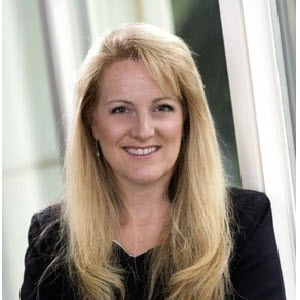 Kathleen Peters
Kathleen Peters
Kathleen Peters leads innovation and business strategy for Decision Analytics in North America. As the prior Head of North America Fraud & Identity business, Kathleen is well-recognized as an identity industry innovator, being named a “Top 100 Influencer in Identity” by One World Identity the last two years. As of 2020, Kathleen was named Chief Innovation Officer for Decision Analytics.
Kathleen and her team rely on the power of AI to continuously find new ways to solve customer challenges by defining product strategies, new paths to market and investment priorities. Underlying these efforts is a key focus on the ethical use of technology and the need to be consciously unbiased.
 Laura Stoddart
Laura Stoddart
Laura Stoddart is a physicist turned data scientist who works at the Experian DataLab in London. From her first exposure to AI, she recognized how quickly it can have an impact on the world, which has driven her to get and stay involved in the industry – both professionally and personally.
Laura’s recent work has focused on ethical AI, having recently contributed to her first paper addressing the removal of bias from models. In addition, she is concentrated on leveraging emerging datasets to evaluate risk. Outside the DataLab, Laura also volunteers her data science skills to good causes such as Bankuet and helps expose others to the world of AI through mentoring.


